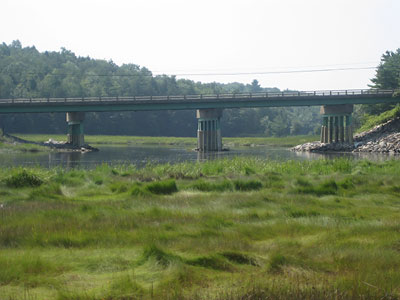

 | |||||||||
|
|
Journals 2009/2010Teresa Gable
August 18, 2009 Today, I worked with Abby, Elizabeth and Colleen. It was an extremely hot day, with temperatures in the 90s. We each carried 4 or 5 liters of water with us to replace the sweat we lost during the day. It is critical to be well prepared.
The reference marsh is the northern part of Sherman Marsh. It is what a typical salt marsh should look like. The reference marsh will be used as a control to compare the flora and fauna. The same sampling methods are used in both the Sherman Marsh and the reference marsh. There are two transects in the reference marsh set up the same way from the creek to the upland area. Each plot is identical to the ones found in the reference marsh. The reference marsh has remained constant year after year. If both sites experience any change in flora or fauna then you would know that is due to nature but if only Sherman Marsh changes then it is the result of a natural succession of plants and animals from freshwater to salt-tolerant species. |
||||||||
